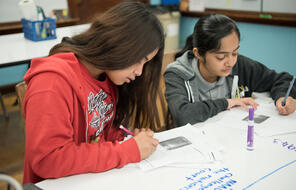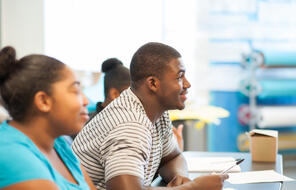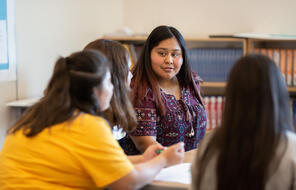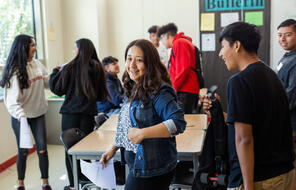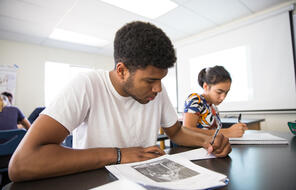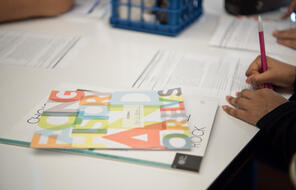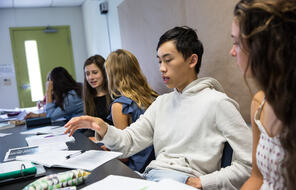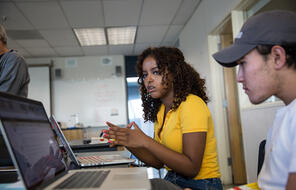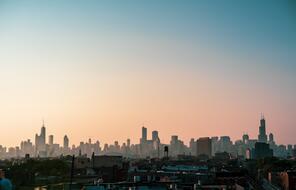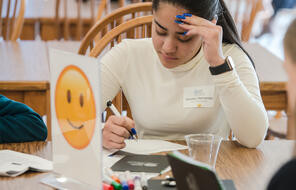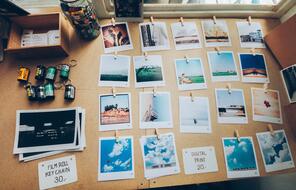Words Matter
How does it feel to be called something you did not choose for yourself? Over time people have used a long list of words to describe the Indigenous Peoples of Canada, but those words have rarely been the words that the Indigenous Peoples would use themselves. The power of labels comes not only from the choice of words but also from how (and by whom) they are spoken.
Mary Isabelle Young is a scholar of Anishinaabe descent. 1 The Anishinaabe, or Ojibway, peoples are one of the First Nations. In her book Pimatisiwin: Walking in a Good Way, Young interviews an Anishinaabe woman of both Cree and Ojibway descent who wishes to go by the name Niin, meaning “me.”
Niin was educated in the formal Canadian school system and grew up in an urban community. In the following passage, she recalls the first instance in her childhood when she encountered the term Indian . Although she was unaware of the word’s meaning, the context in which it was used made her conscious, for the first time, of the differences her peers perceived in her.
I’m not sure whether I was in grade one or in grade two; actually I think it was in kindergarten, because my Mom was home at that time. I remember being outside for recess. You know everyone was running around, playing in the middle of the field. All of a sudden I stopped because I realized that a few of the kids who were in my classroom had formed a circle around me. They were going around and around the circle and I realized I was in the middle of this circle. I was trying to figure out what the heck is going on here? They were saying something and I started listening to them. They were saying “Indian, Indian, Indian.” And I was like what? I really didn’t understand myself, first and foremost as an “Indian.” Right in the middle of when they were doing that, the bell rang and everybody just turned toward the door and started walking in. I remember looking down on the ground wondering, what are they talking about Indian, Indian, Indian?
I don’t even know how that circle formed in the first place. I didn’t catch it. It just seemed all of a sudden they were all around me and I just stopped, looking at them all. The bell rang right away. I just remember putting my head down, walking, looking at the grass, I was really thinking about, what was that all about? I didn’t even remember it by the time we got to the door. Except for when I got home I asked my Mom.
I remember when I went home, my Mother was standing at the counter. She was baking something or other but she was working at the counter and I just walked up to her and I was watching what she was doing. I remember my chin barely touched the counter and I was watching her. I said, “Mom, what am I?” And she looked down at me and said really fast, “Were people asking you what you were?” I said, “Yes, they were calling me Indian.” She said, “Tell them you’re Canadian.” I couldn’t really figure out why she was sounding so stern and kind of angry. I just thought okay and I turned around but I remember that afternoon really clearly. I think why it stuck in my mind so much is because they were in a circle ridiculing me. And I don’t even know. I didn’t even take offence because I didn’t know what they were doing. Even though they were calling me Indian, I was still going yeah, so what? So it always puzzled me about why, why they were calling me Indian. And because I didn’t really feel any different from them, even though I knew my skin was darker, my hair was brown, and I had a shinier face. I really didn’t feel any different from them or feel I was different from them.
I just felt we were all just kids. I think that’s when I started learning that there were different kinds of people. I knew that there were different kinds of people by just looking and seeing like different looking people but not people who are different from one another. 2
Connection Questions
- What do you think the word Indian meant to the kids in Niin’s class? What factors might have shaped her classmates’ understanding of the word?
- Niin approaches her mother and asks, “Mom, what am I?” “What am I?” and “Who am I?” are questions that many people ask themselves. How do you explain why the confrontation with her classmates led Niin to question her identity?
- What do you think of Niin’s mother’s response? Why do you think Niin’s mother told Niin she was Canadian? What did she want Niin to understand about herself? Considering the rest of the excerpt, what might she have wanted Niin’s classmates to learn?
- 1Mary Isabelle Young et al., eds., “About the Contributors,” in Warrior Women: Remaking Postsecondary Places Through Relational Narrative (Bradford, UK: Emerald Group Publishing, 2012), 191.
- IndianIndian: When the first European explorers landed in the Americas in 1492 with Christopher Columbus, they referred to the entire indigenous population on the continent as “Indians” because they believed that they had arrived in India. The term came into widespread use among the settlers, and it lumped together entire local populations, disregarding their extraordinary diversity. Ultimately, the name Indian served to differentiate between Indigenous Peoples and the settlers, who referred to themselves as Europeans, whites, and, finally, Canadians.
- 2Mary Young, Pimatisiwin: Walking in a Good Way, A Narrative Inquiry into Language as Identity (Manitoba: The Prolific Group, 2005), 47–48. Reproduced by permission of Pemmican Publications.
How to Cite This Reading
Facing History & Ourselves, "Words Matter," last updated September 20, 2019.



